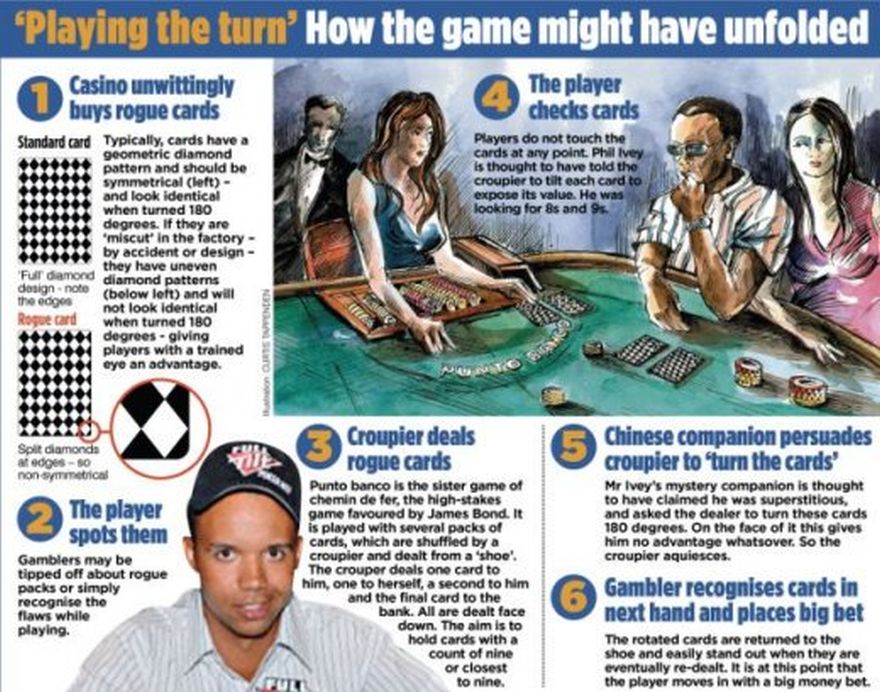In 2016, a judge ordered Phil Ivey and his gambling friend Cheung Yin Sun to pay over $10 million to the Borgata after the two were found to be edge-sorting to gain an edge in baccarat. One year later, roughly $12 million dollars in baccarat earnings was ruled to stay with Crockfords Casino in London after they were found to be cheating and gaining an advantage on the casino.
But did the pair actually cheat? The two judges certainly thought so, but a deeper look at exactly what Ivey and Sun did may leave you with a different answer.
The Timeline
For those who are unaware or may have forgotten, a quick rundown of the situation is in order. In 2012, Ivey and Sun, who was known to read the flaws in casino playing cards, started playing baccarat at the Borgata Punto Banco Baccarat tables.Over four sessions, the pair would net themselves $9.6 million. In August of the same year, Ivey and Sun traveled to Crockfords in London and won a whopping £7.8 million ($12 million), but the casino had suspicions and refused to payout.
The suspicions arose from the specific list of requests Ivey had before making the £1 million deposit at the casino. The requests were as follows:
- A private area for play,
- A dealer who spoke Mandarin Chinese,
- A guest to sit with him.
- One 8-deck shoe of purple Gemaco playing cards for each session, and
- An automatic card shuffler to be used.

With those requests in place, Ivey and Sun made their deposit and put on a clinic. By requesting a specific deck of cards that Ivey and Sun knew had irregular edge patterns, the two were able to determine which cards were profitable for them or not.
However, a lawsuit by the Borgata in 2013 would stop them in their tracks. Ivey and Sun would go on to sue Crockfords the following year for withholding their winnings.
In 2016, U.S. District Court Judge Noel Hillman found that the pair were in violation with the contract with the casino and ordered them to pay over $10 million. The following year, after appealing his case to the highest level, Ivey’s $12 million stayed with Crockfords.
Is It Really Cheating?
Cheaters are usually trying to hide the fact that they are gaining an unfair advantage against the casino. Although not seen as cheating by some, card counters in black jack are still discreet when actually counting cards to avoid getting thrown out and blacklisted by some casinos.The difference with Ivey and Sun is that the two were very open with what they intended to do. They never tried to fool the casino in any way since all of their requests were relayed prior to any money being deposited, and the casino agreed to all of the requests.
Once the casino agreed to the terms Ivey laid out, he and his partner exploited a flaw in the cards and used that to their advantage. But just like a player doesn’t have to tell someone he saw their card in Texas Hold’em, Ivey isn’t responsible for upholding the integrity of the game.
He is simply a patron, who is playing a game that he and the casino agreed upon, and, in my eyes, that does not make him a cheater. A rule-bender for sure, but certainly not a cheater.

